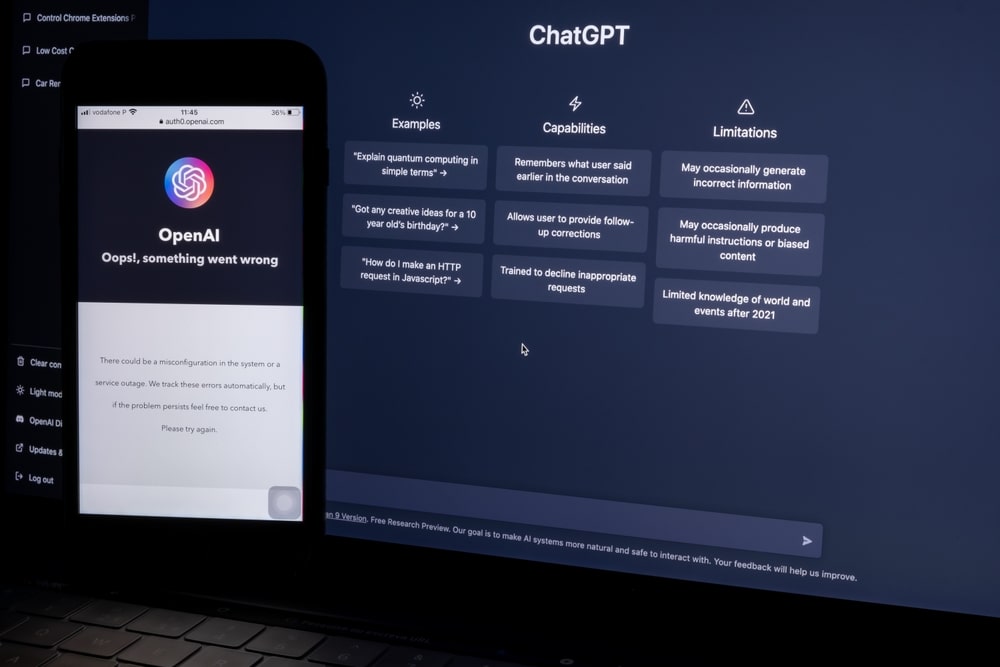AI-generated content is currently a hot-button issue in several circles. The line between human and AI work blurs more daily in art, writing, and other areas. Google released a statement in early February explaining where the company falls in the debate. In short, Google is not banning AI content.
Statement Highlights
Google’s statement made it clear that the company concerns itself more with quality than the source. In no uncertain terms, the company said that content produced with AI or automation is not against its guidelines. There are caveats to that statement, however.
The company reiterated its focus on “people-first” content. Essentially, that means content created for real people and not just made to climb up search rankings. Any human or AI content ranks based on Google’s E-E-A-T policy to determine the quality and weed out spam.
What is E-E-A-T?
E-E-A-T stands for “expertise, experience, authoritativeness, and trustworthiness” and was introduced in 2022. It’s Google’s standard for ranking content. Any pages lacking one of the core four E-E-A-T traits are usually considered lower quality. E-E-A-T is a guideline, but it’s useful in determining what Google considers to be helpful content.
- Expertise – An author with expertise in a topic, such as a doctor blogging about healthcare topics, has more expertise in the subject matter than someone with no medical training.
- Experience – Experience is the newest addition to the E.E.A.T acronym (previously E.A.T). Essentially, the content creator should have experience in the subject matter. If someone writes a city exploration guide, for example, they should live in or visit the city themselves.
- Authoritativeness – Authors and pages gain authority (or authoritativeness) when other relevant pages or entities cite their work. If a museum links a page about artifacts, that artifact page is more authoritative.
- Trustworthiness – Positive reviews, site security, and demonstrating the other E-E-A-T qualities makes a page more trustworthy.
How Does This Affect SEO Strategy?
Google explicitly stating that AI content is allowed doesn’t necessarily affect SEO strategy. However, it means the pool of competition is larger. Human and AI content are evaluated with the same metrics, meaning those who critically evaluate their content by Google’s standards will succeed.
People-first content is the ultimate goal for Google. Apply the best SEO practices to people-first content rather than creating works and pages for the search engine, and rankings will reflect the effort. That applies equally to human and AI content. Creators who choose to go forward with AI content
Tips for People-First Content
Along with the E-E-A-T guidelines, Google suggests assessing your content with a few questions. This is one way of determining the quality of the material and assessing whether it’s actually helpful.
- Who? – When someone visits your page, is it immediately obvious who authored the content? If not, add bylines and author information if possible.
- How? – This is particularly useful for AI content. Including some type of disclosure letting readers and visitors know that all (or part) of the content was generated by AI or automation is helpful and increases the page’s trustworthiness. That’s one of the primary E-E-A-T features, after all.
- Why? – This question is the most critical, but it’s fairly straightforward. Why does the page exist, or why was the content created? For your page to rank highly, content should always be created to help people.
Should You Use AI-Generated Content?
The answer to this depends on the creator and page, of course. Using AI content isn’t a death sentence for search rankings, either for those using it or those putting out human-generated content. The same SEO tactics and evaluation strategies apply to both.
It’s important to note, as Google pointed out in their statement, that material produced by AI or automation isn’t spam content by default. As long as it meets the quality standards laid out by E-E-A-T and the people-first approach, it does what it should. It helps people and answers valuable questions. That’s what the system rewards with higher rankings.
Final Thoughts
The official declaration that Google accepts AI content is big news in the AI and automation debate. It ups the ante and makes a successful SEO strategy crucial for success. SEO can still set a piece apart from the competition in a world where search engines evaluate AI and human-generated work with the same metrics. For work that ranks highly by E-E-A-T standards and adheres to Google’s people-first agenda, SEO is more important than ever.
